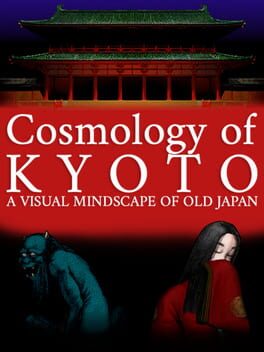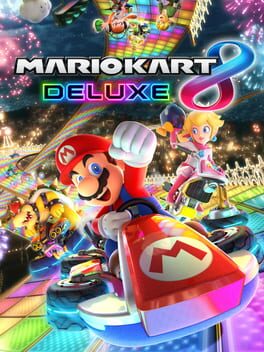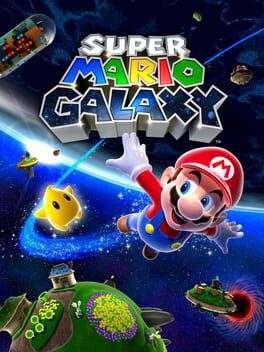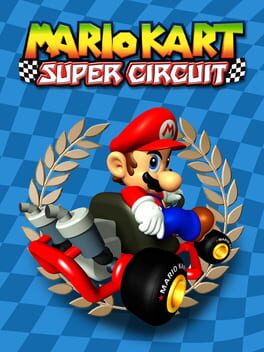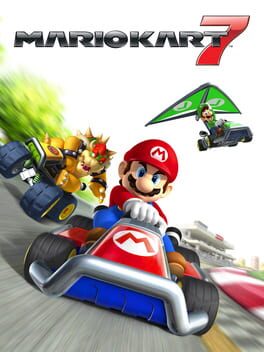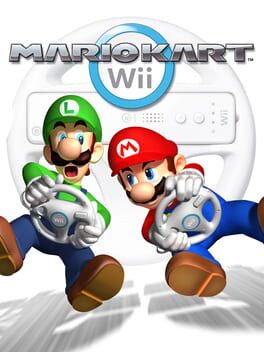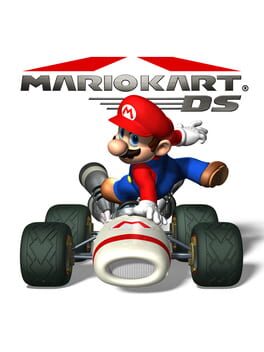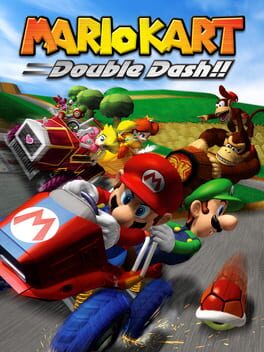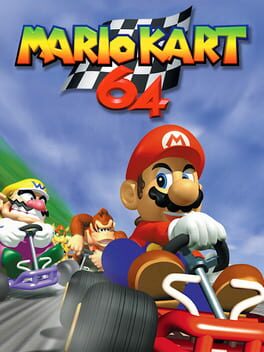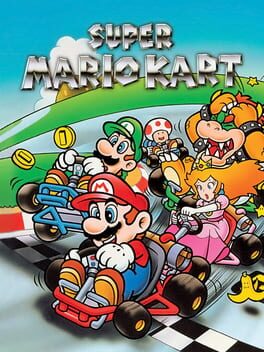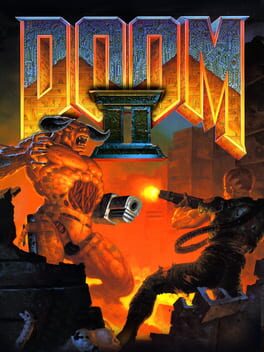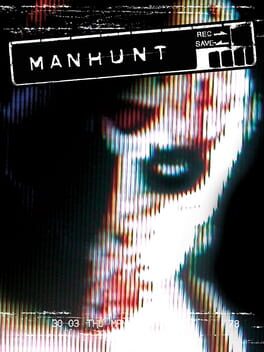Stabbed
2023
There are pages upon pages that I could write about this game, how it makes me feel, what it makes me think, and I knew that I would have difficulty putting the pen to paper even before getting halfway through the game. Every turn left me with something to ruminate on, every session leaving me with more spiraling thoughts than the last. I want to keep this as spoiler-free as I can, since I think that this is an experience best had blind as possible, so it may not seem as long or as thorough as I'd like. Maybe I'll make an extended version with spoilers galore, who knows. To make it easier, let me just start with the big statement:
Alan Wake II is a monumental achievement in video games. It is the magnum opus of a team of developers that have worked tirelessly for 20 years to push, expand, bend, and break the boundaries of what the medium of video games can do, before the idea of "the medium of video games" was even a concept in the public consciousness. It carries with it the weight of decades-old Chekhov's guns that have slowly had their hammers pulled back further and further with every new game or expansion under the Remedy name, all firing at the player throughout the story; some of those guns are 9-millimiters, others are 12-gauges. It may seem odd to fixate on the 13 years spent letting this game come to life, but there is an undeniable weight to the fact that it is the culmination of years of buildup, put together piecemeal with every new game in the Remedy catalog, every passing year making it shift and evolve and mutate into a supernova, a point of no return for both Remedy and for AAA games as a whole.
Alan Wake II is a game that needs to exist. It feels like a thunderous wake-up call to every game developer, large and small, to see what can be done with the technology that we're able to create with at this point in time. I'm sure we've all groaned at numerous hardware manufacturers' insistence on "the power and capability of the X" and "the new era of DLSS RTX FSR AA" leaving us with nothing much to think other than "huh, that sure is a game with good graphics", but I must stress that this is not the case when I praise this game's technological feats. The game uses every tool that modern hardware seems capable of to create visually stunning images that sear themselves into your brain, to shift realities with the press of a button, and to blur the line between full-motion video, pre-rendered CGI, and real-time cutscenes; a sleight of hand that could only be achieved if the graphics were clean enough and the transitions smooth enough to make you believe that it was all one continuous story flowing through multiple avenues. Not only does it do all this, but it succeeds in doing this by having exceptional art direction, not one scene or environment feeling generic, with even the most miniscule of details given a touch of love from the game's artists. This is the point that needs to be focused on; it uses this technology to express a clear, but sprawling artistic vision, not the inverse-- that being funneling a vision through the lens of parading technical ability.
The game has been referred to, quite frequently in fact, as the closest video game equivalent to Danielewski's House of Leaves, and I feel as though that is an apt description. As mentioned, I'm avoiding all spoilers in this review, but the way the narrative constantly folds in on itself with deeply postmodern meta references to both in-universe and external details, combined with the overall premise of "a horror story becoming reality", I feel like the comparison is a given. That being said, I wanted to bring it up to succinctly describe how extremely impressive the story is, not just for a video game, but as writing in general. As much as people might like to be reductive ("it's confusing, so people think it's smart!"), it's painfully obvious that creating something like this takes mental power that I, nor most people playing it, could even imagine having. Were it not for this magnificent, expansive, recursive, twisting narrative, then Alan Wake II would indeed be what the detractors call it; a tech demo. However, the art direction being used to bring this story to life is what, in my opinion, completely nullifies any chance at those arguments holding water.
For now, I think I'll leave it here. This is one of the greatest artistic experiences I've ever had the immense pleasure of bearing witness to, and one that I hope will be remembered as this generation's Half-Life 2 in terms of being a high watermark of what can be achieved with the technology that great creative minds can channel their visions through. I firmly believe that if this does not cause a titanic sea change in the field of AAA gaming within the next 5 years, then gaming as a medium will be showing itself to have grown stagnant and comfortable in the expected, in the norm. Every generation needs a game like this to remind us of the power and magnitude that exists within our favorite medium, one that inspires us to follow in its footsteps and create something great ourselves.
Alan Wake II is a monumental achievement in video games. It is the magnum opus of a team of developers that have worked tirelessly for 20 years to push, expand, bend, and break the boundaries of what the medium of video games can do, before the idea of "the medium of video games" was even a concept in the public consciousness. It carries with it the weight of decades-old Chekhov's guns that have slowly had their hammers pulled back further and further with every new game or expansion under the Remedy name, all firing at the player throughout the story; some of those guns are 9-millimiters, others are 12-gauges. It may seem odd to fixate on the 13 years spent letting this game come to life, but there is an undeniable weight to the fact that it is the culmination of years of buildup, put together piecemeal with every new game in the Remedy catalog, every passing year making it shift and evolve and mutate into a supernova, a point of no return for both Remedy and for AAA games as a whole.
Alan Wake II is a game that needs to exist. It feels like a thunderous wake-up call to every game developer, large and small, to see what can be done with the technology that we're able to create with at this point in time. I'm sure we've all groaned at numerous hardware manufacturers' insistence on "the power and capability of the X" and "the new era of DLSS RTX FSR AA" leaving us with nothing much to think other than "huh, that sure is a game with good graphics", but I must stress that this is not the case when I praise this game's technological feats. The game uses every tool that modern hardware seems capable of to create visually stunning images that sear themselves into your brain, to shift realities with the press of a button, and to blur the line between full-motion video, pre-rendered CGI, and real-time cutscenes; a sleight of hand that could only be achieved if the graphics were clean enough and the transitions smooth enough to make you believe that it was all one continuous story flowing through multiple avenues. Not only does it do all this, but it succeeds in doing this by having exceptional art direction, not one scene or environment feeling generic, with even the most miniscule of details given a touch of love from the game's artists. This is the point that needs to be focused on; it uses this technology to express a clear, but sprawling artistic vision, not the inverse-- that being funneling a vision through the lens of parading technical ability.
The game has been referred to, quite frequently in fact, as the closest video game equivalent to Danielewski's House of Leaves, and I feel as though that is an apt description. As mentioned, I'm avoiding all spoilers in this review, but the way the narrative constantly folds in on itself with deeply postmodern meta references to both in-universe and external details, combined with the overall premise of "a horror story becoming reality", I feel like the comparison is a given. That being said, I wanted to bring it up to succinctly describe how extremely impressive the story is, not just for a video game, but as writing in general. As much as people might like to be reductive ("it's confusing, so people think it's smart!"), it's painfully obvious that creating something like this takes mental power that I, nor most people playing it, could even imagine having. Were it not for this magnificent, expansive, recursive, twisting narrative, then Alan Wake II would indeed be what the detractors call it; a tech demo. However, the art direction being used to bring this story to life is what, in my opinion, completely nullifies any chance at those arguments holding water.
For now, I think I'll leave it here. This is one of the greatest artistic experiences I've ever had the immense pleasure of bearing witness to, and one that I hope will be remembered as this generation's Half-Life 2 in terms of being a high watermark of what can be achieved with the technology that great creative minds can channel their visions through. I firmly believe that if this does not cause a titanic sea change in the field of AAA gaming within the next 5 years, then gaming as a medium will be showing itself to have grown stagnant and comfortable in the expected, in the norm. Every generation needs a game like this to remind us of the power and magnitude that exists within our favorite medium, one that inspires us to follow in its footsteps and create something great ourselves.
1993
Undoubtedly an interesting game, especially for the time, but not exactly what I was expecting going through. The surreal and more outwardly superstitious aspects were really intriguing and made me keep going, but the rest didn't grab me as much; it felt more like an abstract history lesson. Not that that's a bad thing, mind, but it didn't compel me to push through the dated playstyle and bugs that my copy had. If a die-hard fan of this game sees this, if there's any way to play this without game-ruining bugs (that of the blank text boxes), please let me know. I want to like this more, but from what I can find, it's just pretty good.
2017
What made 7 great with some added stuff from Wii that makes this feel like the definitive Mario Kart, which is obvious, but still. There's a reason it's been the standard for 10 years now, there's not much else you can do that this game hasn't done. Great roster of maps both base game and DLC, remakes are consistently good to great (Coconut Mall is a rare exception), character lineup is good but definitely some weird choices (zero people wanted 5 Babies and also WHERE IS CAPTAIN FALCON), but the obvious winner here is the gameplay. Every bit as smooth as you'd expect from a 7 follow-up, plus anti-grav allowing for much more dynamic map layouts and the return of ramps just make this so much fun to play. I went through the entire roster of non-remakes with my friend and it was some of the most fun we've had in a while. A+ game, even if there are a couple aspects from the older games I prefer. Only slightly.
2007
It's cute. The music is really good and the level design is simple, but effective in giving you a goal and having you succeed in it. I prefer the Stars in the other 3D games I've played (haven't played Sunshine yet), as I think they flow better and encourage more exploration, but the streamlining here isn't bad. Makes it easier to pick and choose whichever worlds you like or don't like. Rosalina is a great character and the Lumas are very sweet. There's a certain... elegance? to this game that really gives it a boost, I think without the setting, music, art direction, it wouldn't have gone as far. Not saying that as an insult to the game or the fans, more so focusing on how much the non-gameplay aspects of this elevate the game compared to the other Marios. Probably not going to rate it any higher due to frustration with the controls and camera, as well as the galaxies themselves being mostly coin tosses in terms of enjoyment for me, but I'm glad I played it.
All the comments talking about how much this game falls to pieces in the third act were not joking, man. I already wasn't completely on board with this like most other people (mainly because I found the movement to be very slow and constantly bogged down), but I liked it well enough and loved the Raimi/Hooper inspiration in the first act. The horror wore off on me quick, but still had some good scares throughout, enough to not feel bored. Of course, again, this all goes to pot once the second act closes. You can feel how forced the third act is, to the point where you could sum everything that happens in it up with a document. The drawn-out unskippable cutscenes and repetitive videotape sections throughout the game (but especially near the end) aren't great, either.
I haven't played the DLCs yet, maybe they'll enhance some of the game for me, but this was honestly a letdown for how much it had been hyped. The first act was gold, second act was pretty good, third act was a total bomb that kinda soured the whole experience for me. Not a bad game at all; hell, the characters here are some of my favorites in the series (save for the bland-ass protagonist), but it's not one I could see myself coming back to too often, and if I do, it'll be after I learn some speedrun strats for the last couple sections.
I haven't played the DLCs yet, maybe they'll enhance some of the game for me, but this was honestly a letdown for how much it had been hyped. The first act was gold, second act was pretty good, third act was a total bomb that kinda soured the whole experience for me. Not a bad game at all; hell, the characters here are some of my favorites in the series (save for the bland-ass protagonist), but it's not one I could see myself coming back to too often, and if I do, it'll be after I learn some speedrun strats for the last couple sections.
I didn't think I'd rank this below Super, but at least that game had charm, this one doesn't even have that. The AI doesn't blatantly cheat like in that game, but my god are these levels the worst the series has to offer. When they aren't painfully simple, they feel deliberately annoying and hard to see because of the GBA's extremely limited screen space. Very little that I like in this, but I'll give the game some credit and say the terrible controls and slidiness might've been because I was playing Bowser. I don't care enough to check how the other racers play.
2011
This is the MK game I played the most when I was younger, so maybe I'm just really familiar with it, but I still have no clue why this one gets so shafted by fans as much as I see it does. The glider sections are a great addition, the loss of bikes is sad but they're replaced with maps that have a heavy focus on huge drifts, and the maps are all pretty good. The new maps are mostly solid, maybe the best Rainbow Road in the series, but there are a couple bland ones; none explicitly bad, though. As everyone else has said, the major highlight of the game is its fantastic retro courses. Overall, just a very consistently "good" game. No soaring highs (like Wii's) nor crushing lows, but just really good throughout.
2008
Unless 8 blows me away, this is the best one, for sure. All 16 new courses are all fantastic, not a single dull moment among the bunch, and the retro tracks aren't snoozers, either. The trick system is, of course, brilliant, combined with the focus on drifting thanks to the easier controls and new bikes, and you've got one of the most consistently fun games I can think of. Anyone who writes the praise for this game off as nostalgia is being intentionally pig-headed, you can feel how great this is as soon as you start your first race. The only Mario Kart game so far where I've actively wanted to unlock everything manually, rather than begrudgingly acquiescing or just cheating it in. Absolutely deserves the hype.
2005
This gets a knock down solely because of the D-pad controls making my thumb raw. As for the game itself, I personally don't love it as much as everyone else does. The unlockables are good, and I'm glad they started including Retro courses (though I don't factor them into the score), but the Nitro courses are complete coin tosses, and I think most are misses for me. Some greats, like Waluigi Pinball (obviously) and Shroom Ridge, but even if a course isn't explicitly bad, I just find that a lot of them are just bland. Impressive for a DS game, but I'm not huge on it. Still good, though.
I'm very at ends with how I feel about this game. The back axle controls make the game constantly feel like ice physics, which sucks, and I feel like the AI uses traps in some insanely sadistic ways, but something about this just... works. The heavy focus on items, the synergy you can make with character combos, the maps being more experimental and ambitious with their layouts, it just feels good, even when the controls are tricky. Some maps here are absolute stinkers (Sherbet Land is bad), but some are my favorites in the series (Baby Park rep fr). Pretty good, and I feel like if I played it more and got used to the controls and maps, I'd like it more.
1996
One of the Mario Kart games I grew up with, and what really is the first actual MK game. Somehow, despite being "3D", the controls are just as janky as SMK's, but the level design is more interesting now. Not by a huge amount, but at least there's some more in-depth music and decorations. Not great, but not terrible, either. Great battle mode, though.
1992
I'm giving this a generous score since I did mildly abuse rewind in my emulator, because wow does this game fall off badly. The Mushroom Cup is genuinely great fun, lightweight but doesn't feel too finnicky. The other three are trainwrecks for me, a deadly mixture of clunky controls and aggravating map design. Oh, and I've genuinely never seen AI that cheats as blatantly as whoever is in 1st and 2nd place in front of you; literal constant Power Stars.
That being said, it is charming. It's nice to see what's essentially the codifier of kart racing games, the music is pretty sweet, the animations are cute, and it does have some fun moments (again, mostly in the Mushroom Cup). Unfortunately, it's just not enough to outweigh my personal gripes with the game.
That being said, it is charming. It's nice to see what's essentially the codifier of kart racing games, the music is pretty sweet, the animations are cute, and it does have some fun moments (again, mostly in the Mushroom Cup). Unfortunately, it's just not enough to outweigh my personal gripes with the game.
2005
This game should not exist.
It does not feel like there was ever a time before Resident Evil 4, yet it certainly feels like we are all living in its aftermath. To say that this game is "confident" with its design might be the biggest understatement I've ever written. It doesn't feel confident, it feels like concrete rules of game design being rebuilt right in front of you. It takes as many cues from the series' roots with its core gameplay philosophies as it does rail shooters a la House of the Dead with its perpetual forward motion and linear map design; "every room feeling like something new." I've seen this game described as a new age of Resident Evil, a reinvention of the series, ushering in the "action era" of the series, but I think that's selling it short.
Auteur theory is something that I am personally at ends with, as I do think there are creative visionaries who leave a thumbprint on all of their works, but it still feels like I'm drastically reducing the tens, hundreds of people involved in game development to merely support for the big name. That being said, one must be impressed by Shinji Mikami. I can not comprehend practically inventing the survival horror genre with the original Resident Evil, help heighten action games to a new level with Devil May Cry, returning to a classic to iron out the few flaws and give it a good spit shine with REmake, and finally flip the gaming world on its head with Resident Evil 4. With that out of the way, there are some design choices from both REs 1 and 4 that I'd like to highlight: your inventory, and decision making.
When I think of RE1, I'm instantly reminded of the dread it induces with its strangling inventory and how key it is to trim all fat possible and keep only the bare necessities, lest you end up with an essential item left behind due to no free space. In every sense, RE4 manages to keep its iconic inventory management aspect, but only after completely overhauling it into something that has never, and probably will never be outdone. At an entry level, it's simple: rearrange items to fit the space; a Tetris-esque minigame in your downtime. But the more you play, the more your inventory feels like more than just a bag of options, it's a flash reminder of your entire arsenal. As much as I love the 2023 remake's decision to map certain weapons to the D-pad (a very comfortable feature), I find that it takes away from a certain improvisational aspect the game's combat has. You go into a room, you're surrounded by enemies, and after you shoot a few rounds to get the baddies swarming you off, you open your inventory; clarity. You think about how many enemies are in the room, how many shots you've put into them, when your last Merchant visit was, your ammo for all weapons, your grenade count, upcoming sections (if you're a returning player), and so much more, with one button press. And the only reason you have that moment of lucidity is because the game reminds you of your entire catalog, decorated in whatever order you prefer the most. Not only does it allow you to have satisfying click moments of everything fitting into place, but it lets you test your own speed, swapping between grenades, pistols, shotguns within seconds to sweep away enemies. Then, once that room is cleared, you collect all the ammo you've got and run another stocktake, mentally preparing yourself for the next encounter, just one small gear in what makes this game play like clockwork.
Adding onto that, I'd like to cross-reference this excellent review by SimonDedalus, wherein the game asks of you "how do you adapt to it putting you in a cage with Wolverine." It may sound silly on the surface, but the tensest encounters (a great example is the cabin in 2-2) in this game are, in my opinion, its shining moments. Sure, it's fun to pop the heads of enemies from a mile away with your rifle, but being trapped in a room not much bigger than you are and having enemies strapped with maces, cattle prods, crossbows, claw hands, or rocket launchers with nothing but the weapons you have and an ever-evolving game plan in your mind is what separates this game from the Resident Evil entries that would follow it. There's no expression of skill in mindlessly mowing down zombies, which is why this game never offers you that. The infected are tough, and you're doing yourself a disservice by just plugging away at them. Switching your styles and adapting to what the game throws at you will not only keep you well-stocked with ammo, as the "AI director" likes to throw a variety of ammo types at you to balance using guns you like while also keeping your gameplay fresh, but also reward you with a richer, deeper understanding of the game's combat and possibility for what could only be described as "combos" in the RE world.
There's more to talk about, of course, but I really think those two factors hone in what makes this game an immortal entrant into the pantheon of video games. Sure, I could talk about its effortless stylistic switch-ups, or its wonderfully cheesy B-movie charm, or its superbly satisfying and iconic sound design, but those are all just the church built on the proverbial "rock" of masterclass game design.
This is the best game ever made, in fact, I'd like to raise it up a peg: I consider RE4 to be an artistic achievement in humanity's name, and we are lucky to coexist alongside it in time. If you are a game designer, this game should light your head aflame with creativity, and if it doesn't, keep playing until it does. Even if you're not a game designer, the sheer strength and confidence in every aspect this game has should be enough to instill anyone with the faith in themselves they need to create something special of their own. If Shinji Mikami can do it, if Leon S. Kennedy can do it, if Capcom can do it, if Resident Evil can do it, so can you.
It does not feel like there was ever a time before Resident Evil 4, yet it certainly feels like we are all living in its aftermath. To say that this game is "confident" with its design might be the biggest understatement I've ever written. It doesn't feel confident, it feels like concrete rules of game design being rebuilt right in front of you. It takes as many cues from the series' roots with its core gameplay philosophies as it does rail shooters a la House of the Dead with its perpetual forward motion and linear map design; "every room feeling like something new." I've seen this game described as a new age of Resident Evil, a reinvention of the series, ushering in the "action era" of the series, but I think that's selling it short.
Auteur theory is something that I am personally at ends with, as I do think there are creative visionaries who leave a thumbprint on all of their works, but it still feels like I'm drastically reducing the tens, hundreds of people involved in game development to merely support for the big name. That being said, one must be impressed by Shinji Mikami. I can not comprehend practically inventing the survival horror genre with the original Resident Evil, help heighten action games to a new level with Devil May Cry, returning to a classic to iron out the few flaws and give it a good spit shine with REmake, and finally flip the gaming world on its head with Resident Evil 4. With that out of the way, there are some design choices from both REs 1 and 4 that I'd like to highlight: your inventory, and decision making.
When I think of RE1, I'm instantly reminded of the dread it induces with its strangling inventory and how key it is to trim all fat possible and keep only the bare necessities, lest you end up with an essential item left behind due to no free space. In every sense, RE4 manages to keep its iconic inventory management aspect, but only after completely overhauling it into something that has never, and probably will never be outdone. At an entry level, it's simple: rearrange items to fit the space; a Tetris-esque minigame in your downtime. But the more you play, the more your inventory feels like more than just a bag of options, it's a flash reminder of your entire arsenal. As much as I love the 2023 remake's decision to map certain weapons to the D-pad (a very comfortable feature), I find that it takes away from a certain improvisational aspect the game's combat has. You go into a room, you're surrounded by enemies, and after you shoot a few rounds to get the baddies swarming you off, you open your inventory; clarity. You think about how many enemies are in the room, how many shots you've put into them, when your last Merchant visit was, your ammo for all weapons, your grenade count, upcoming sections (if you're a returning player), and so much more, with one button press. And the only reason you have that moment of lucidity is because the game reminds you of your entire catalog, decorated in whatever order you prefer the most. Not only does it allow you to have satisfying click moments of everything fitting into place, but it lets you test your own speed, swapping between grenades, pistols, shotguns within seconds to sweep away enemies. Then, once that room is cleared, you collect all the ammo you've got and run another stocktake, mentally preparing yourself for the next encounter, just one small gear in what makes this game play like clockwork.
Adding onto that, I'd like to cross-reference this excellent review by SimonDedalus, wherein the game asks of you "how do you adapt to it putting you in a cage with Wolverine." It may sound silly on the surface, but the tensest encounters (a great example is the cabin in 2-2) in this game are, in my opinion, its shining moments. Sure, it's fun to pop the heads of enemies from a mile away with your rifle, but being trapped in a room not much bigger than you are and having enemies strapped with maces, cattle prods, crossbows, claw hands, or rocket launchers with nothing but the weapons you have and an ever-evolving game plan in your mind is what separates this game from the Resident Evil entries that would follow it. There's no expression of skill in mindlessly mowing down zombies, which is why this game never offers you that. The infected are tough, and you're doing yourself a disservice by just plugging away at them. Switching your styles and adapting to what the game throws at you will not only keep you well-stocked with ammo, as the "AI director" likes to throw a variety of ammo types at you to balance using guns you like while also keeping your gameplay fresh, but also reward you with a richer, deeper understanding of the game's combat and possibility for what could only be described as "combos" in the RE world.
There's more to talk about, of course, but I really think those two factors hone in what makes this game an immortal entrant into the pantheon of video games. Sure, I could talk about its effortless stylistic switch-ups, or its wonderfully cheesy B-movie charm, or its superbly satisfying and iconic sound design, but those are all just the church built on the proverbial "rock" of masterclass game design.
This is the best game ever made, in fact, I'd like to raise it up a peg: I consider RE4 to be an artistic achievement in humanity's name, and we are lucky to coexist alongside it in time. If you are a game designer, this game should light your head aflame with creativity, and if it doesn't, keep playing until it does. Even if you're not a game designer, the sheer strength and confidence in every aspect this game has should be enough to instill anyone with the faith in themselves they need to create something special of their own. If Shinji Mikami can do it, if Leon S. Kennedy can do it, if Capcom can do it, if Resident Evil can do it, so can you.
Alright fine, I've been won over. This one kicks ass, and yeah, it's better than 1. I think 1 has a simplicity to it that I really love, but god the highs in this are some of the best the FPS genre has to offer. Completely shifts the focus of the first game being tight arcade-y levels with surgical enemy placement to throwing you headfirst into the grinder, whole fields of enemies that are as eager to shred you as you are to them. I wish I could rank this game even higher, because I really do love it and what it stands for, but the low parts in this feel torturous. Nothing in 1 comes close to the pain of trudging through Downtown or The Chasm or Bloodfalls. But, also, nothing in 1 comes close to slaughtering through The Spirit World or Nirvana or The Courtyard or Dead Simple or
You get the point.
You get the point.
2003
Manhunt is a game that's always really interested me. I've always had a grim, morbid fascination in the transgressive and controversial, the way the media can make people fear a film or game more than the actual work itself could. When I was younger, I probably had the entire Rockstar history memorized and would spring into a hearty speech about how "games aren't really the problem, it's the people", but you'd never really find me playing any of Rockstar's games; in an ironic reversal, I was just as fixated on the controversy of the material rather than the material itself. Of their entire catalog, Manhunt was the game that piqued my curiosity the most, since the very concept was so boiled down: you just kill people in gruesome ways, no morality tests, no philosophical questions. I played the first few levels when I was 13 or so, and thought I was a real scary edgelord for loving a game where brutality was so rewarded (guess what my favorite fighting games were), but I never really got far in it. I felt satisfied with the couple hours of exposure I got, and I think that feeling hasn't changed for me now, years later.
Manhunt lays its cards on the table early, and lets you know what you're getting into quite clearly: a dark, almost noiresque atmosphere, aided by the gritty PS2 visuals and clearly Carpenter-inspired soundtrack, and the sneering voice of Brian Cox cheering you on as you brutally murder the people in your way. For the first hour or so, it really is effective. The camera angles and quality of the Executions, along with the fluid mocap work, provides a grisly realism that works to unsettle even the most grizzled of horror vets. Combine that with some high-level sound design, and the end result is a spectacle of potently macabre entertainment, but it's not something that lasts.
As with most horror-adjacent media, exposure and desensitization are its Achille's heel. Not only is the arsenal of weapons surprisingly limited, a good third or more of that arsenal aren't available for Executions, and some of the weapons even reuse their Execution animations, which leads to even the most effective kills feeling dull after a couple levels of repeats. Unfortunately, rather than try to "up the ante" and make the game progressively more disturbing, it feels as though the developers completely throw in the towel somewhere around the third act, and turn the game into something more like Max Payne (sans bullet time) or even a "3D Hotline Miami"; the difficulty spikes, stealth is thrown to the wind, and guns become your primary tools against enemies, drying what remained of the atmosphere out completely, and turning it into a repetitive chore as the game gets closer to the finish line. And once you get to that finish line, is there a grand revelation waiting for you? Something that completely changes the context of the game, and perhaps even gives an "explanation" of the savage bloodthirst that you willingly took place in?
No. The antagonist dies, and the game ends with a brief news montage giving a slight bit of depth as to what happened, but never any concrete answers or commentary, which leads me to ask: what was the point? Was this a meta-commentary on how the elites are the real monsters, how police are just as cruel as the sadistic gangs you've been victim to, but society still finds a scapegoat to blame rather than looking at root causes? Is there perhaps an ironic connection between me, the player, never finding out any reasoning for why this all happened, leaving me in the same shoes as the protagonist? Could Rockstar be criticizing themselves, using the antagonist as an obvious stand-in for game developers who revel in the controversy garnered from subjecting the world to gruesome imagery?
Then I remember that this is a game that actively applauds you for performing more sadistic kills, with no cartoonish overexaggeration or a detached "silliness" to the bloodshed, just a jagged realism to everything you see. I believe there is no deeper meaning to be extracted from it. The game is sick, and I'm sick for playing it through to the end.
Manhunt lays its cards on the table early, and lets you know what you're getting into quite clearly: a dark, almost noiresque atmosphere, aided by the gritty PS2 visuals and clearly Carpenter-inspired soundtrack, and the sneering voice of Brian Cox cheering you on as you brutally murder the people in your way. For the first hour or so, it really is effective. The camera angles and quality of the Executions, along with the fluid mocap work, provides a grisly realism that works to unsettle even the most grizzled of horror vets. Combine that with some high-level sound design, and the end result is a spectacle of potently macabre entertainment, but it's not something that lasts.
As with most horror-adjacent media, exposure and desensitization are its Achille's heel. Not only is the arsenal of weapons surprisingly limited, a good third or more of that arsenal aren't available for Executions, and some of the weapons even reuse their Execution animations, which leads to even the most effective kills feeling dull after a couple levels of repeats. Unfortunately, rather than try to "up the ante" and make the game progressively more disturbing, it feels as though the developers completely throw in the towel somewhere around the third act, and turn the game into something more like Max Payne (sans bullet time) or even a "3D Hotline Miami"; the difficulty spikes, stealth is thrown to the wind, and guns become your primary tools against enemies, drying what remained of the atmosphere out completely, and turning it into a repetitive chore as the game gets closer to the finish line. And once you get to that finish line, is there a grand revelation waiting for you? Something that completely changes the context of the game, and perhaps even gives an "explanation" of the savage bloodthirst that you willingly took place in?
No. The antagonist dies, and the game ends with a brief news montage giving a slight bit of depth as to what happened, but never any concrete answers or commentary, which leads me to ask: what was the point? Was this a meta-commentary on how the elites are the real monsters, how police are just as cruel as the sadistic gangs you've been victim to, but society still finds a scapegoat to blame rather than looking at root causes? Is there perhaps an ironic connection between me, the player, never finding out any reasoning for why this all happened, leaving me in the same shoes as the protagonist? Could Rockstar be criticizing themselves, using the antagonist as an obvious stand-in for game developers who revel in the controversy garnered from subjecting the world to gruesome imagery?
Then I remember that this is a game that actively applauds you for performing more sadistic kills, with no cartoonish overexaggeration or a detached "silliness" to the bloodshed, just a jagged realism to everything you see. I believe there is no deeper meaning to be extracted from it. The game is sick, and I'm sick for playing it through to the end.

